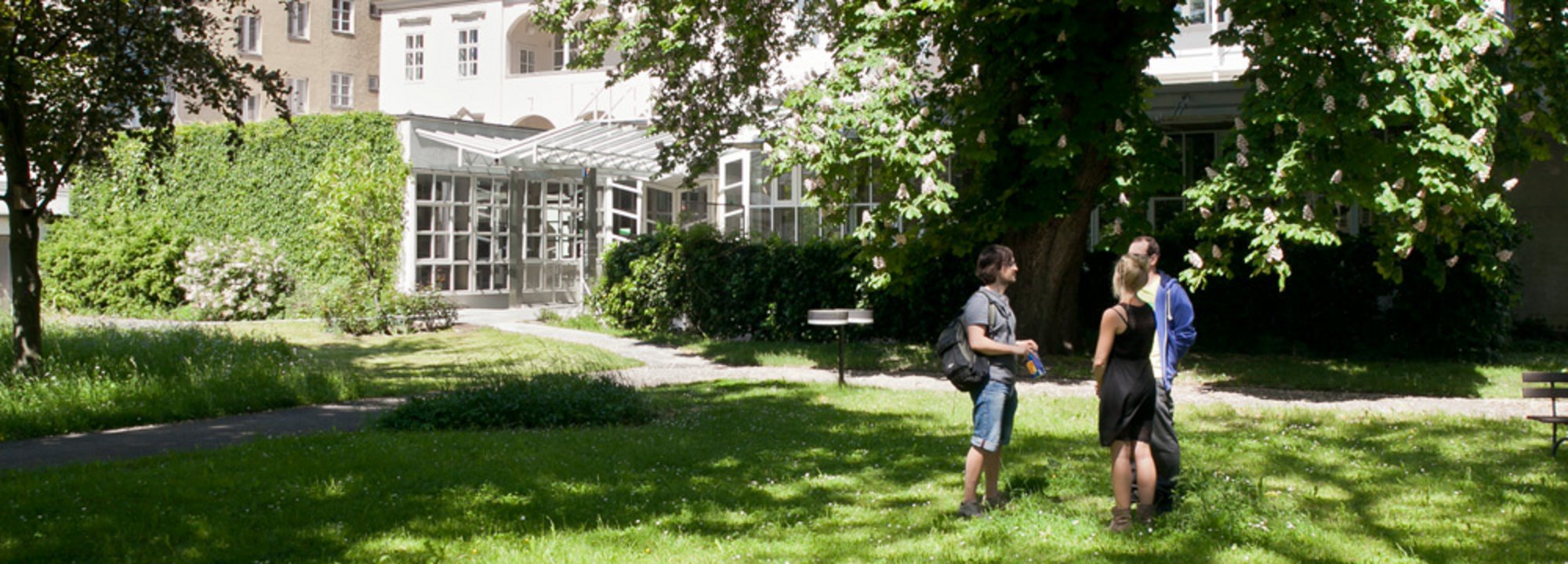
The History of the KU Linz
Historically speaking the Catholic Private University Linz is Linz’s oldest, as we call it, “Hohe Schule.” Linz has been a thriving place for theological research for more than 300 years already. In 1669, the local Jesuit Order began offering study programmes in Philosophy and Church Law in the then building of the local Latin School. Already a few years later in 1672 additional courses in theology were offered. Empress Maria Theresa then made it possible for the School to offer a full-time theology degree. When the Jesuit Order was suspended in 1773, the theological educational was taken over by the Austrian government. In 1850, the national “K.K. Study Centre for Theology” was turned into the “Episcopal School of the Diocese of Linz,” which in 1853 moved to the premises of the seminary in the Harrach Street of Linz.
Establishing the Faculty of Theology
In 1971, the former “School of Philosophy and Theology Linz” was renamed the “College of Philosophy and Theology of the Diocese of Linz.” In 1978, the Congregation for Catholic University Education upgraded the College to a full Theological Faculty. The process was finalised in 1988. As the “Catholic Theological College Linz/Faculty of Theology” (KTHL) it became entitled to award full constitutionally acknowledged degrees based on the Concordat of 5 July 1933. The Federal Ministry of Education and Arts confirmed this legislation by letters dated 22 May 1979 and 18 September 1979.
Accreditation as Austria’s First Private University
By letter of 2 August 2000, the Federal Ministry for Education, Science and Culture certified the Catholic Theological University Linz to becoming the first private university in Austria. The university is now called “Private Catholic-Theological University of Linz” (KTU Linz).
Establishing the “Institute of Art and Philosophy ad instar facultatis”
On 2 February 2005, the Congregation for Catholic Education established the “Institute of Art and Philosophy” (IKP) with full faculty rank (“ad instar facultatis”), specifically holding the right to issue degrees in philosophy. The IKP has been offering philosophical and art historical courses since A.Y. 2005/06.
New Curricula
As part of the changes in European higher education that came about with the integrating Bologna process of 2008, the following study courses have been put into effect:
- “Bachelor in Catholic Religious Education” (abbreviated as Bac.rel.paed)
- “Magister Catholic Religious Education” (Mag.rel.paed)
- The German “Diplomstudium” (comparable to a Master's degree) in Catholic Theology remains in place as a five year study programme.
- “BA in Art History and Philosophy”
- “MA in Art History and Philosophy”
Both faculties offer PhD programmes and the German habilitation.
Establishing the Faculty of Philosophy and of Art History
As part of the further diversification of the Catholic Theological University of Linz the Congregation for Catholic Education turned the “Institute of Arts and Philosophy” into a full “Faculty of Philosophy and of Art History,” by decree of 9 December 2014. This addition to the already existing philosophical and theological studies and to the study programmes combining art history and philosophy now allows offering independent degrees in philosophy and art history. The name of the institution was changed to: “Catholic Private University Linz” (KU Linz). The foundation ceremony for the new faculty was held on 5 October 2015.
The Private University
Just as the university building combines a gentle architectural entanglement of an old Baroque building and a modern structure built in the 1980s, the university itself promotes dialogue between traditions steeped in history and pressing questions of the present day. More than 30 scientists teach theological, philosophical and art-historical disciplines: Biblical Studies, Fundamental Theology and Dogmatic Theology, Catechetics, Religious Education and Pedagogy, Canon Law, Church History and Patrology, Liturgics and Sacramental Theology, Moral Theology, Pastoral Theology, History of Philosophy, Practical Philosophy, Systematic Philosophy and Art History.
The University is specifically strong in interconnecting the studies of business, ethics and society as well as in promoting the dialogue between the Church today, theology and art. We are particularly proud of our inclusive atmosphere.
Our publicly accessible library is the third largest in Linz. It holds a broad spectrum of scientific literature. Our private university is a distinguished place for the study of the humanities in Upper Austria with its thriving research and teaching activities in theology philosophy and art history. The university invites the general public to join our intellectually accessible public lectures, symposia and exhibitions. The ongoing research activities of our academic staff is published in the Theologisch-praktische Quartalschrift (first published in 1848), in the Linzer Philosophisch-theologischen Beiträge, the magazine "kunst und kirche", the Linzer Beiträge zur Kunstwissenschaft und Philosophie as well as numerous individual publications.
Literature: Rudolf Zinnhobler, Die Katholisch-Theologische Fakultät Linz: Werden, Entwicklung und Gestalt, in: ThPQ 146 (1998) 390-401; under the header „Die Theologische Fakultät Linz in Geschichte und Gegenwart” also in: ders./Kriemhild Pangerl, Kirchengeschichte in Linz. Fakultät - Lehrkanzel - Professoren, Linz 2000, 13-26.
